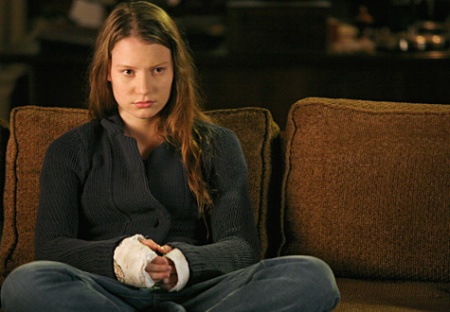
It feels a little cliche quoting Grey’s Anatomy on Grey Thinking, but there are so many good quotes…. and I’ve been re-watching the series from the beginning (hey, why not?), and it’s funny how some things stand out to you when watching for the second time.
You’re happy? You’re happy now? The Meredith I knew was a force of nature. Passionate, focused, a fighter. What happened to you? You’ve gone soft! Stammering about a boyfriend and saying you’re waiting to be inspired. You’re waiting for inspiration? Are you kidding me?! I have a disease for which there is no cure, I think that would be inspiration enough! Listen to me, Meredith. Anyone can fall in love and be blindly happy! But not everyone can pick up a scalpel and save a life. I raised you to be an extraordinary human being, so imagine my disappointment when I wake up after five years and discover that you are no more than… ordinary! What happened to you?!
— Ellis Grey, Grey’s Anatomy
Sometimes I look back on my high school years (when I was deep in the ED) and think that I was a better person then. Somehow I seem to think that back then I tried harder, was more earnest, focused, passionate, smarter… and that now I’ve somehow “gone soft.” I’ve failed at being anything “extraordinary.” I couldn’t hack it, I gave in, and I’m really nothing but ordinary.
In reality, I know that I was miserable in high school, completely immersed in the eating disorder and in a fog of depression and hopelessness. There was nothing better about me then. And, the anorexia did not make me extraordinary. It did not make me special. It made me sick, sure… but heck, the flu makes you sick. Water in Mexico makes you sick. Being sick doesn’t make you extraordinary. It just makes you… sick.
I don’t think it’s uncommon to dislike the idea of being ordinary. Ordinary to me means… unmemorable, unimportant, unremarkable, unexceptional, and lots of other un- words. You don’t want to your life to be of no significance. You want to be memorable and you want to feel like your life matters!
I’ve often said that I still hold on to the eating disorder “just in case.” In case I am a disappointment, in case I can’t measure up, in case I’m not worthwhile. This is so ironic though, because the eating disorder really robs you of so many things in your life. The more involved I am in the ED, the less present I am in the rest of my life. I’m less focused on work, less invested in relationships, and less interested in hobbies or holidays or anything.
I think that eating disorders distance you from everything that makes you extraordinary. They blunt all the things about you that do make you special. And it’s sad (and a little ironic, actually), because some of the most amazing people that I know are friends who I made in treatment


